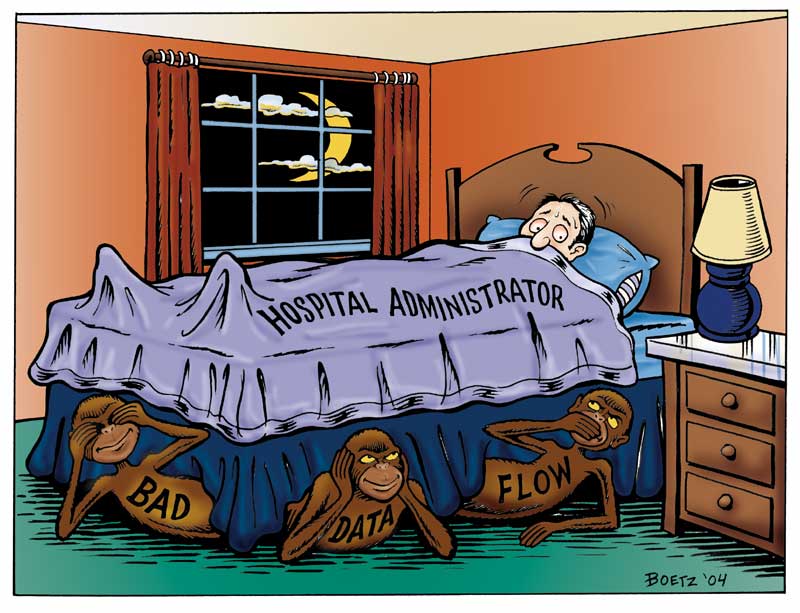Celebration Is More Than Fun and Games
Many of you either are, have been or will be managers of other people. As such, you know what it’s like to get bogged down by dictates from upper management or crummy attitudes on the part of those who work for you. It’s easy to let such things get you down.
The problem is, when you’re a manager, if you’re down, your people probably are as well. Thankfully, there’s an antidote to all of this. Humor restores flagging spirits and helps people (you and those who report to you) put things in perspective. Celebration energizes people, pulls them together and puts the fun back in work. As a manager (and employee), humor and celebration can be your greatest friends.
Recently I heard someone speak on this topic. He is Kraig Kramers, author of CEO Tools: The Nuts-n-Bolts of Business for Every Manager’s Success, and keynote speaker at the recent annual conference of IMDA, the Westmont, Ill.-based association of specialty medical distributors and reps.
Kramers is a huge proponent of on-the-job celebration, and in fact recommends that companies appoint a CFO – Chief Fun Officer – to ensure that it becomes a permanent part of their cultures. He’s not talking about a full-time position. But he’s saying that unless someone is paid to think about this, it might never happen, or it might not happen often enough – and you might lose valuable people needlessly.
Kramers offered eight suggestions to help managers build that culture of celebration. I think they’re worth sharing.
- Compensation. When you set new goals, make sure that you align compensation with them. Nothing de-motivates people more quickly than working hard to achieve a big goal and then failing to get rewarded financially. Here’s another tip: Make sure your incentive compensation pays off in sync with the results being produced. Too many companies have annual bonus programs. The problem is, three months after they’ve been paid, your people have spent the money and forgotten about it. Better to pay bonuses quarterly, monthly or even weekly.
- Recognition. Everyone knows that a pat on the back lasts a long time. So why don’t we do it more often? Because most managers are too busy playing Atlas (with the weight of the world on their shoulders) to take time to recognize their people, says Kramers. Consequently, they give recognition inconsistently, if at all. That’s a sure-fire way to lose people.
- Fun. Having fun sets the great companies apart from all the rest, says Kramers. Fun keeps great people onboard, achieving great results for the company, while having a good time doing it. If you’re the moody type (as many managers are), then let someone else be the out-front “fun” guy. Chances are, you know who that person is already. One last tip: Don’t forget that the definition of having fun always includes making a profit (or achieving some cost-saving goal).
- Personal growth. Training and learning are like communication: They must be repetitive and late-breaking/updating as your business world evolves, says Kramers. Show your people you care by providing ongoing training. Personally give them a business or management book every now and then.
- Challenge. “People don’t quit playing because they get old; they get old because they quit playing,” said baseball legend Satchel Paige, as quoted by Kramers. Indeed, people need challenges in order to grow. So create ongoing challenges for yourself and your people. Jointly develop “big audacious goals,” then follow up regularly on the progress being made to attain them.
- Convenience. Make it convenient for people to work for you, says Kramers. They’ll celebrate privately if you create more personal time for them. Offer telecommuting or flex time, for example. Your people gain more time with their families and less time fighting traffic, and you’ll get a more committed workforce.
- Communication. People want two things more than any others – communication and recognition. As a leader, you should find ways to deliver both.
- Security. People need to feel secure physically (Is your parking lot safe?); intellectually (Can your employees apply their ideas freely?); mentally (Can they be open and honest?); and spiritually (Are they free in their beliefs?). Companies can help them feel secure by doing such things as ensuring office safety, building a culture of listening instead of criticism, attributing employees’ ideas whenever appropriate, and developing a well-centered business values statement.

